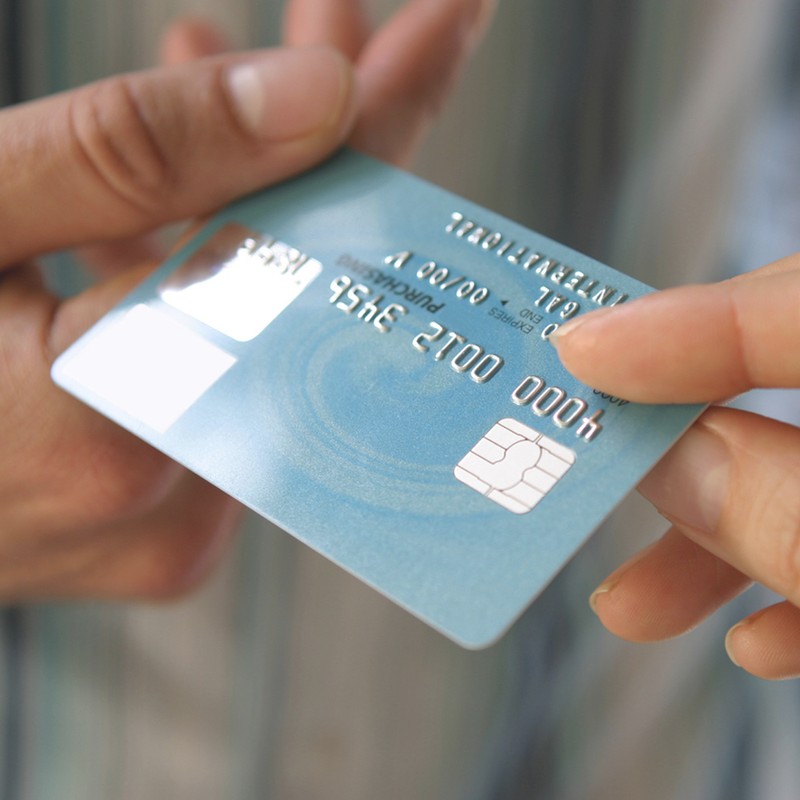Is It Time To Open A Joint Account?
How do you know it's the right time to open a joint bank account?
So, you’ve survived your first holiday away together and have even managed to walk round the whole of Ikea without an argument – could this mean that a joint bank account is on the cards?
“If it feels like it’s starting to get more serious, or you’re planning to move in together or even get married, it’s worth looking at whether it makes sense to combine your finances,” says Samantha Seaton, CEO of Moneyhub. “Paying rent, your mortgage, household bills and managing food and other expenses can be easier and fairer if it’s coming from a collective account. However, sharing a bank account is a big step, so it’s a good idea to test the water beforehand. If you’re living together, try opening a joint ‘household’ account just for bills, before combining all your finances together.”
Jamie Smith-Thompson, managing director of Portafina, agrees that it’s not something you necessarily want to rush into. “When to think about opening a joint account is very much down to each couple. Generally, it’s not something that’s on most people’s minds in the first flush of romance. It’s sensible to wait a little while, to get to know each other better - warts, foibles and all!” he says. “And, if either of you has any doubts then put it off until you are both on the same page.”
What are the benefits of having a joint account?
There are lots of advantages to opening a joint bank account – especially if you’re at a stage in your relationship where your daily living expenses are closely entwined.
“Having a joint account can make paying for joint expenses far simpler,” Samantha says. “For some couples, there will be one member who feels they are paying for more than the other – and this can breed resentment. Having a joint account where both of you add in a set amount each month, will help keep it fair, and will make setting up direct debits for bills and rent much more straightforward.”
There’s also the fact that if you have a joint savings account with good interest rates, your investment should grow quicker.
And don’t forget – joint accounts aren’t just for couples in a relationship. They can also be useful if you’re living with friends and want a way to easily pay for bills and household expenses between you.
And what about the risks?
Unfortunately, opening a joint account with anyone does come with risks, and that’s why it’s important to know that you can trust your partner with money issues. And, one key thing to consider is what your credit scores are like, says Samantha. “Opening a joint bank account or sharing a mortgage could affect your credit score, as you’ll be co-scored together,” she explains. “If one of you has a bad credit score it might be worth keeping your finances separate until this has been resolved.”
And if you break up?
This is something else you need to consider. “Planning for a relationship to end isn’t the most romantic thing to do, but it can be sensible,” Samantha says. “When you’re about to open your joint account it can be worth discussing with your partner what would happen to the money held there should you break up. If the account is purely for expenses and so you both put in a specific amount each month then the solution can be very simple. You’ll both just need to take out your own money and then close the account down. However, if all your finances are shared with your partner it can be slightly more complicated. This will require you to sit down and have a discussion on how to fairly split all your assets. One thing to be aware of is that a joint account can be closed by just one of the account holders. To avoid a situation where one partner withdraws all the money and closes the account without the permission of the other, it’s wise to make an agreement early on to ensure you are both on the same page in the event of a break up. In any event, it can be a good idea to keep some of your finances separate, to ensure you are not financially vulnerable should your relationship end.”
How does a joint account work in practice?
Couples choose to use joint accounts in all sorts of ways, depending on their individual situation. Some choose to pool all of their money together in one or multiple joint accounts (perhaps one savings account and one everyday account), while others prefer to keep some sort of financial independence.
“For many couples, keeping separate personal accounts while having a joint account for bills and everyday expenses is the best way to go,” says Jamie. “You should have a clear idea of what you will need each month and then both set up a direct debit to your joint account on pay day, so it’s all taken care of before you have a chance to think about what else you want to spend your wages on.”
Something that can cause potential worry is how to navigate a situation where there are unequal earnings, but as Jamie says, it doesn’t have to be tricky if one of you has a higher salary. “If you earn twice as much as your partner, you might decide to contribute more to a bills joint account so that your partner has enough money left in their own, separate pot to treat themselves,” he says. “You might take the same approach with a joint savings account or slush fund too.”
Any tips for making it run smoothly?
As with everything, communication is key and being able to honestly and openly discuss your financial situation is essential. “A survey we ran a couple of years ago showed that 57% of people in long-term relationships are not open with their partner when it comes to finances,” Jamie says. “We can be a secretive bunch, with 43% of people admitting to hiding debts from their other half. The bottom line is, however hard we find it to talk about money, having that chat with your partner is vital.”
Samantha agrees and suggests making these discussions part of your routine. “One idea is to set up monthly dates as a couple where you specifically discuss your finances, she says. “It might be awkward at first, but the more you do it, the more comfortable with the topic you’ll be. Remember to not only discuss your day to day finances, but also start thinking about your savings, investments and pensions.”
Can you talk us through the different kinds of accounts?
There are all sorts of different options available – from current accounts and packaged accounts to those with high interest rates – and you should go about choosing a joint bank account much in the same way as you would go about choosing a personal bank account. “If you’re thinking about opening one or more joint accounts, then be clear on the purpose and search for the one that suits you best,” Jamie says. “For example, if you want a joint savings account then interest rates are key. You want this money to grow as much as possible. But be careful around withdrawal penalties and whether or not you both need to give permission before you can take money out. If you are not clear about the purpose of each joint account then you might choose the wrong product, which could cause friction further down the line.”
Some joint accounts will let you have more than two account holders (ideal if you’re opening an account with housemates) and some require you both to agree to any withdrawals or transfers (useful if it’s a business-based account or savings account).
The best thing is to visit a few different banks and have a discussion about what they can offer you.
DISCLAIMER: We endeavour to always credit the correct original source of every image we use. If you think a credit may be incorrect, please contact us at info@sheerluxe.com.






